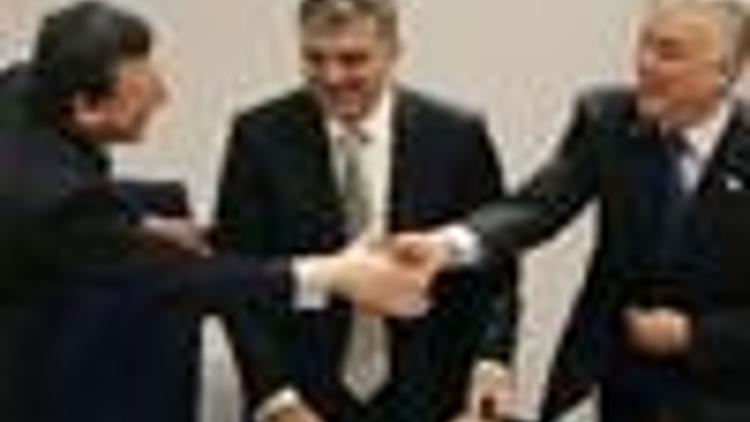Turkey signs Nabucco pipeline plan with EU, key nations reject
Güncelleme Tarihi:

PRAGUE - The European Union and Turkey gave fresh political impetus on Friday to the ambitious Nabucco pipeline project, although key Central Asian gas suppliers held off on pledging their support. (UPDATED)
The EU sought to kick-start the long-planned Nabucco pipeline, which is to deliver Caspian gas while bypassing
The 3,300-kilometre (2,050-mile) pipeline between
But it also needs gas, which may be a problem as
"We haven’t overcome all obstacles by far," acknowledged Czech Prime Minister Mirek Topolanek, whose country holds the six-month EU presidency.
"It is obvious that these countries don’t like to sign this type of declaration and never do that, and today was no exception," he said, adding
Aspirations of closer ties with the bloc also played a role for
But its President Abdullah Gul adopted a less confrontational approach in
"We have an interest to sign it, it is up to the EU side to open this energy chapter. It is clear that
The declaration says that the EU and
The EU has been looking for alternative gas sources especially since a row between
European Union nations rely on
The joint statement also called for progress on ITGI, a Turkish-Greek gas pipeline taking gas to
The Southern Corridor project also seeks to boost transport links with
As well, the statement urges the EU to sign deals on energy with
"Infrastructure projects which interconnect the countries along the Southern Corridor will act as a catalyst for further cooperation in other areas," reads the statement.
Topolanek said
"They are not fully in favor of the project at 100 percent, but we must negotiate because the
European Commission chief Jose Manuel Barroso said he expected the issue to appear on the table for the EU’s summit with
"I will discuss this matter with President (Dmitry) Medvedev," he said.
"We want to make (the Southern Corridor) a win-win situation for everyone involved," he added.

